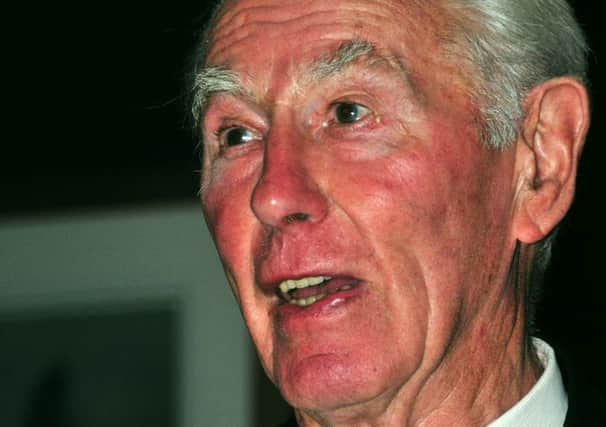Obituary: Professor Peter Brand, academic


Professor Peter Brand, who has died at the age of 93, was one of Britain’s outstanding scholars of Italian literature in the second half of the 20th century.
At the same time, as Professor of Italian, Dean of the Faculty of Arts, and Vice-Principal of the University of Edinburgh, he contributed greatly to the development of the university in difficult years. He will be remembered by many as an inspirational teacher and head of department, and as a kind and devoted colleague, friend and family man with an infectious love of life.
Advertisement
Hide AdAdvertisement
Hide AdCharles Peter Brand was born in Cambridge on 7 February 1923, the son of a monotype operator and then reader at the University Press; on both his father’s and mother’s side he had a large family in and around Cambridge. He attended the Cambridgeshire High School for Boys, where he developed a love for sports of all kinds that never left him; he was a fine cricketer, and quite late on in life he still enjoyed tennis, fishing, golf and walking.
Having won a scholarship, he enrolled at Trinity Hall in 1941 and remained there two years before joining the army. By a fortunate chance he was able to volunteer for a course in Italian for Army Intelligence; one of the first Italian books to come his way was Torquato Tasso’s play Aminta, the translation of which was to be his last published work, some 70 years later.
He served for three years in the army, much of it in Sicily and southern Italy, making the most of the opportunity to talk with Italians of all classes. Soon after returning to Cambridge to complete his studies, he met his Swedish wife Gunvor, to whom he was very happily married until her sudden death in 2010. They spent many long holidays in Sweden with daughters Jane, Anne and Catherine, and their son Simon.
After a brief interlude teaching at the Perse School in Cambridge and working as an assistant in the Edinburgh Italian deparment, Peter became a university lecturer in Cambridge and a fellow of Trinity Hall. His Cambridge Ph. D. thesis was the basis of his ground-breaking book, Italy and the English Romantics, an insightful study that has remained an obligatory point of reference for scholars. Thereafter, his passion was to be the poetry of the Italian Renaissance, with important critical books on Tasso and Ariosto. In 1967 he was appointed to the chair of Italian in Edinburgh, and quickly turned around a department which had been rather lacklustre. As his successor put it, he was “cheerful, energetic, constructive and very effective”. He knew all his students by name and the Italian department was one of the happiest.
More than this, he was known and liked throughout the university, and later filled two important posts, Dean of the Faculty of Arts and Vice-Principal. In both of these he was a hands-on administrator, initiating new developments and striving to persuade colleagues to work together for the common good.
Similarly, in the world of scholarship he was a great leader of teams. For several years he was general editor of the Modern Language Review, one of the most important journals for European and comparative literature, while for Edinburgh University Press he masterminded the Writers of Italy series, setting the ball rolling with his own study of Ariosto.
After retirement, he co- edited, with his successor Lino Pertile, the authoritative Cambridge History of Italian Literature. In recognition of his achievements, he was elected a Fellow of the British Academy, President of the Modern Humanities Research Association for 1995, and successively Cavaliere and Commendatore della Repubblica Italiana.
His retirement was a very active one. For many years he continued to write about Italian literature, developing a strong interest in Renaissance comedy and the theme of disguise. But he also had time to throw himself into a variety of activities, travelling, playing tennis or golf, walking, and growing tomatoes and other vegetables on his much-loved allotment. He and Gunvor continued to enjoy holidaying in Italy, Sweden or at home, spending much time in the caravans they had, successively, in the Borders and near Blair Atholl. Her sudden death in August 2010 came as a great shock, but Peter met this with his characteristic strength, getting together with former colleagues for lunch and even in his nineties continuing to make the most of life. He died peacefully on 4 November and will be sorely missed by his children and grandchildren and his many friends.
Peter France